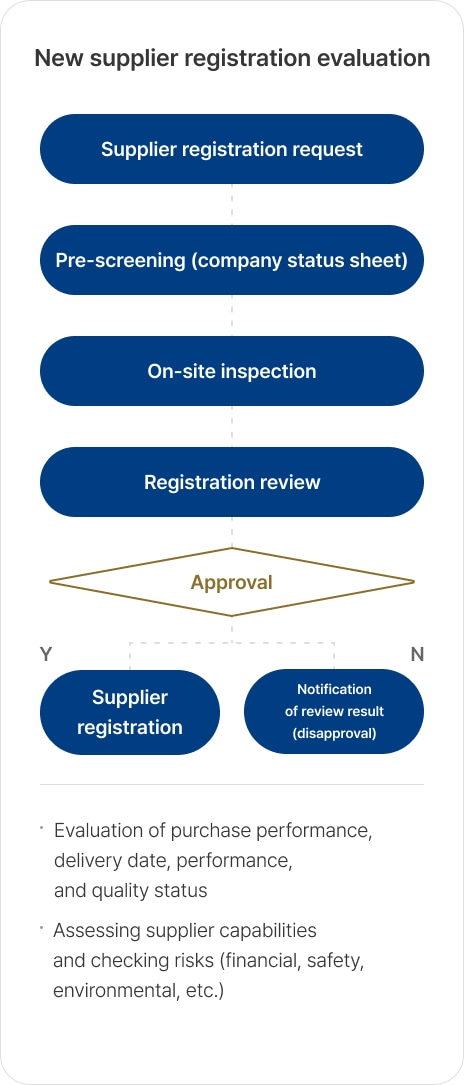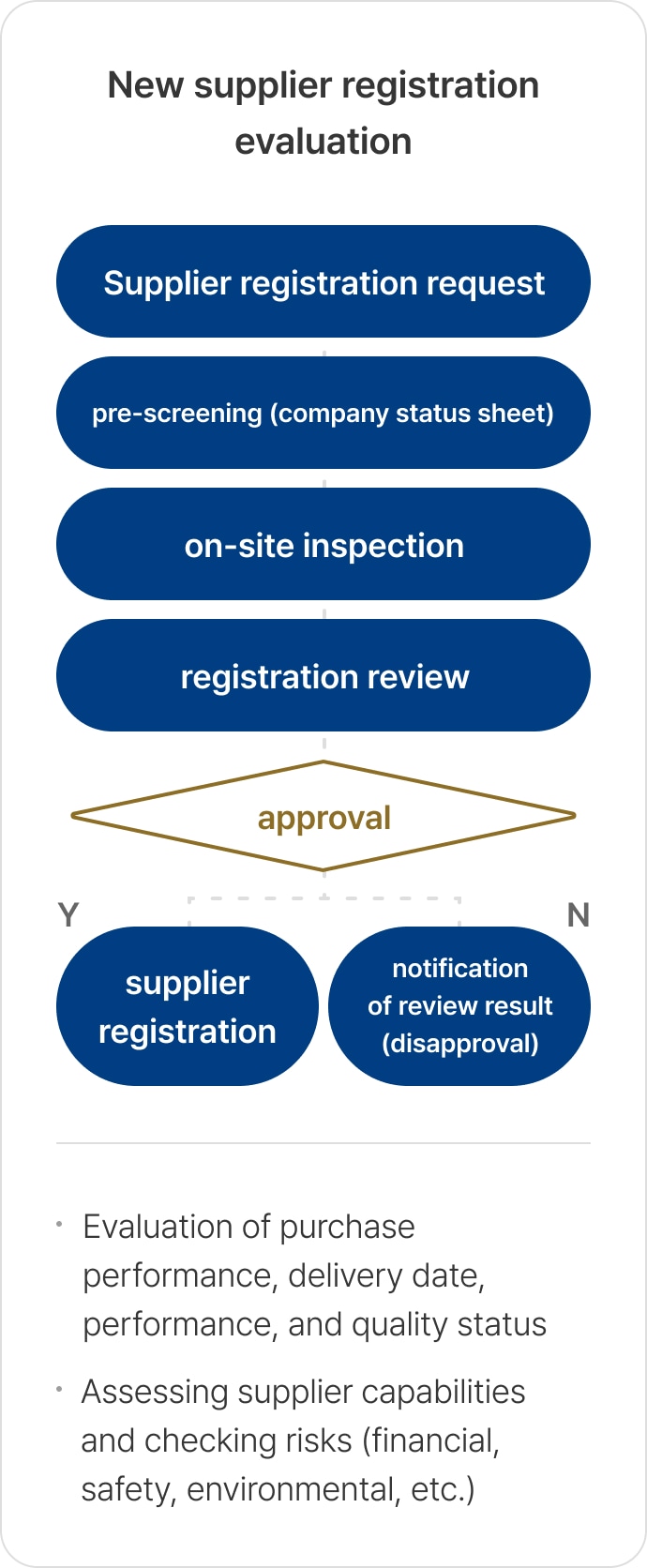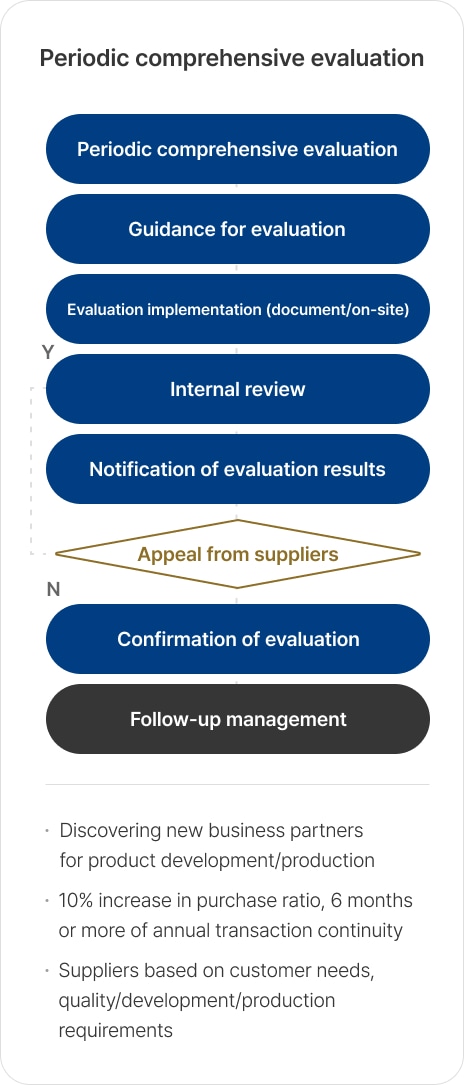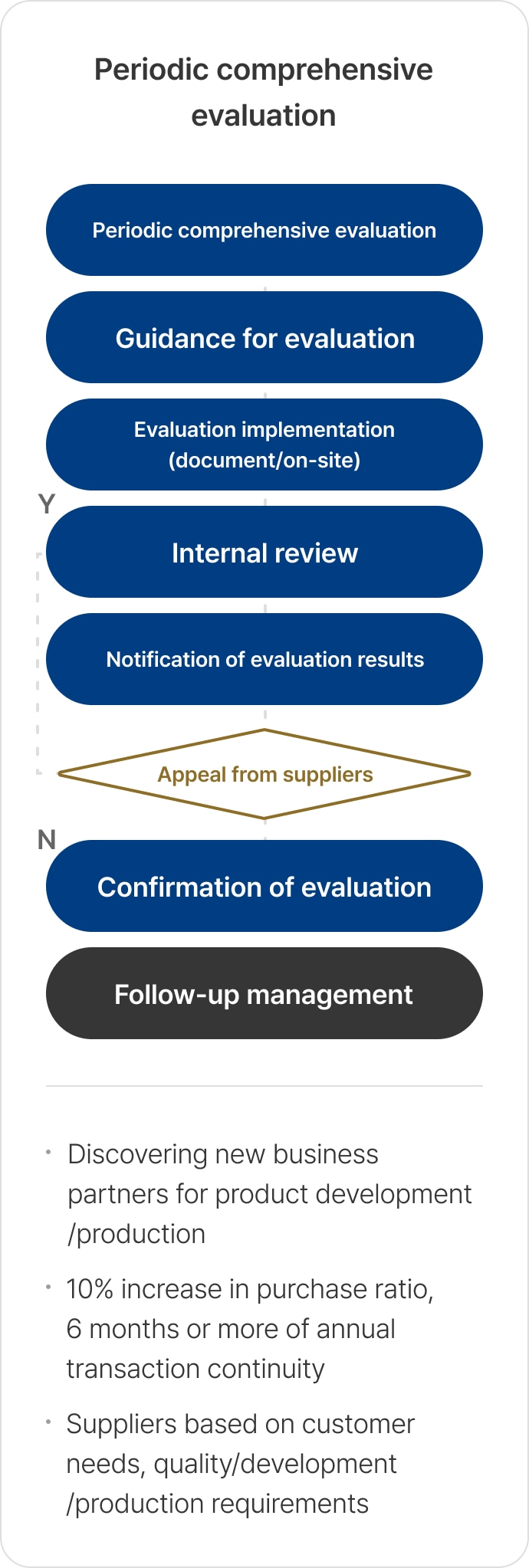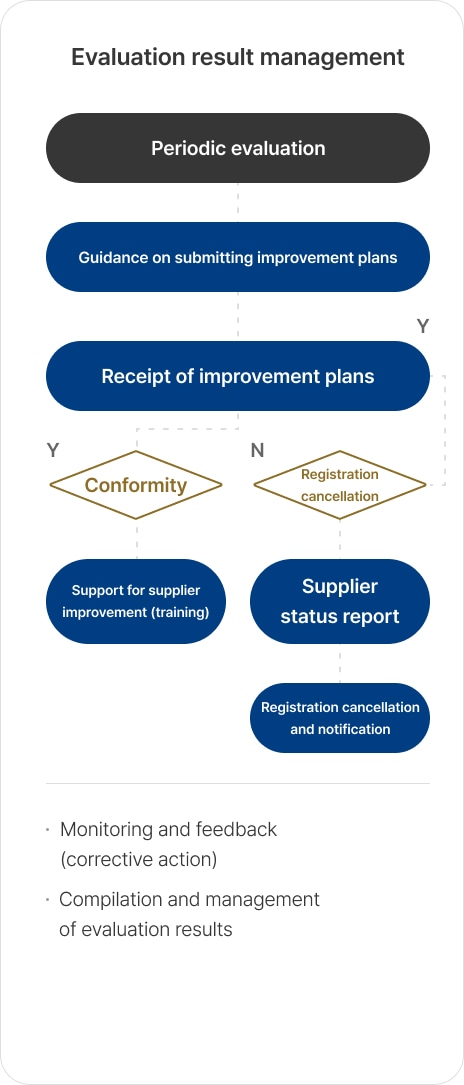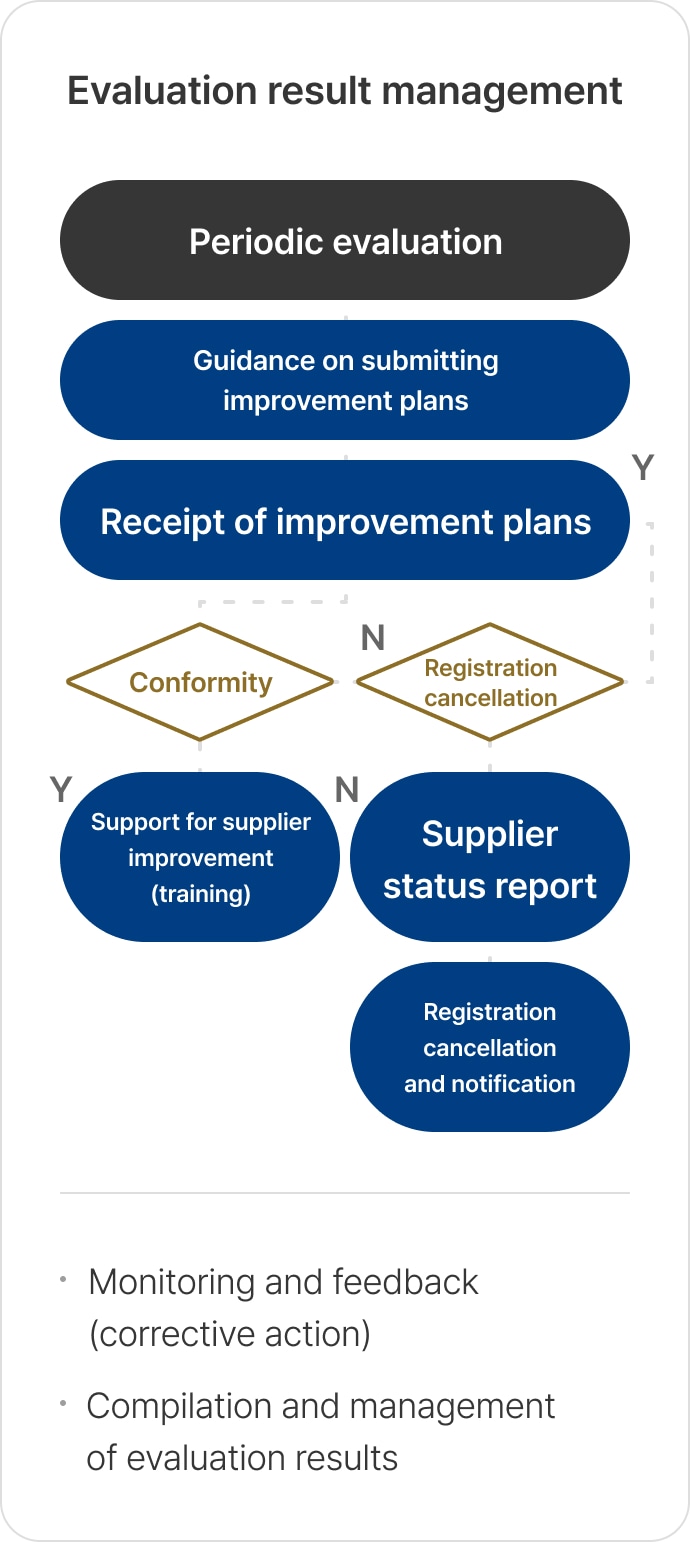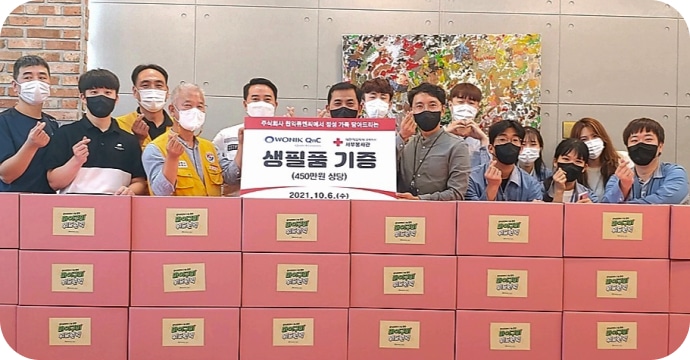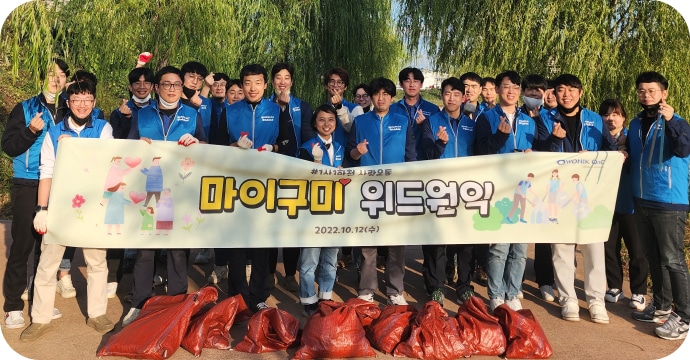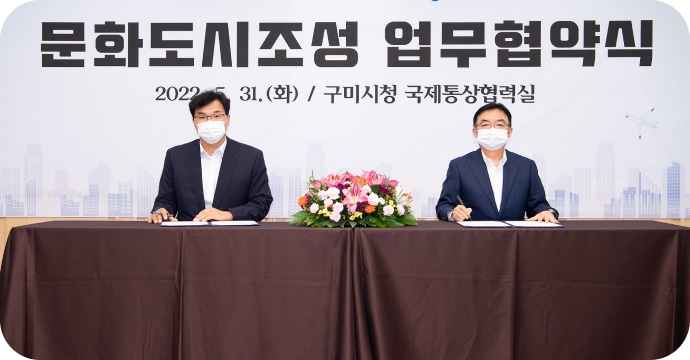Wonik QnC
aims to fulfill its social duty by developing stronger partnerships with suppliers by implementing supply chain
ESG policies and shared growth policies(①fair trade relations, ②promoting and supporting suppliers, and ③shared partnerships)
Shared Growth Policy
-
Fairness
- Fair purchasing agreements
- Prevention of legal violations / support for complaints handling
- Reflecting evaluation results (in allocating volume, rewarding excellent companies)
-
Fostering
- ESG support
- funding
- education support
- Shared Growth Exchanges (quality, manufacturing)
-
Sharing
- Meeting with suppliers
- Sharing suggestions
- Sharing best practices
- Selecting joint innovation projects
Wonik QnC has adopted the following voluntary Shared Growth Policy and received the
"Fair Trade Agreement Implementation Assessment."
Fair Trade Agreement Implementation Assessment
| Rating Year | 21 | 22 | 2023(Rating in Oct.) |
|---|---|---|---|
| Rating Grade | Unapplied | Unapplied | To post a rating grade after completing the evaluation |
Four Pillars of Action for Shared Growth
-
Desirable contract agreement for mutual cooperation
- 1If a shorter delivery date than usual is set for emergency orders after determining the delivery date by regular procedure and enough consultation, agreement should be reached through discussions with suppliers.
- 2Calculating and updating the transaction price using a fair unit price calculation adjustment method, such as reflecting increases in the cost of raw materials, fluctuations in exchange rates, and inflationary effects (introducing delivery price adjustment standards and procedures)
- 3Prohibiting unjustified price reductions, etc.
-
Fair selection (registration) of suppliers
- 1Ensuring fairness and transparency of partner selection (registration) and cancellation criteria (disclose criteria, procedures)
- 2Announcing partner selection (registration) review results
- 3Granting equitable bidding opportunities to suppliers, etc.
-
Establishing and operating a subcontracting internal review committee
- 1Establishing an internal review committee for subcontracting transactions
- 2Conducting a preliminary deliberation on major pricing decisions such as raw material price conditions
- 3Deliberating on the appropriateness of the criteria and procedures for selecting, registering, and canceling suppliers
- 4Operating a reporting center for unfair trade
-
Preferred documentation and retention
- 1Seven documents, including a subcontract (including additional amendment), subcontract confirmation form, certificate of receipt of object, notice of inspection result, reduction document, request to provide technical data and notice of contract change, are issued.
- 2In accordance with Article 23, Paragraph 1 of the Subcontracting Act, documents prescribed in Article 6 of the Enforcement Decree of the Subcontracting Act, such as receipt certificates, inspection result notices, payment slips, and documents recording the reasons for the reduction, are retained for three years.
- 3In line with Article 6, Paragraph 2 of the Enforcement Decree for the Subcontracting Act, requests to supply technical data and related confidentiality agreement documents shall be kept for seven years.
ESG Policy for Supply Chain
In the supplier selection, registration, and maintenance processes, Wonik QnC has designed and implemented the Supplier Code of Conduct, which reflects the globally mandated ESG requirements and provides systematic support to assist suppliers to satisfy ESG requirements.
-
Human rights
Health and safety, working conditions and wages, etc.
-
labor
Freedom of association, child labor, forced labor, etc.
-
environment
Environmental protection and pollution control
-
anti-corruption
Anti-corruption and legal compliance
-
conflict minerals
Regulation of the use of conflict minerals
CSR Vision
-
Vision
Resounding Happiness, Creating Value
Creating values through the dissemination of its core value, 'Happiness.'Mission
Be a respected Corporation
- Short-term2023 ~ 2025 : Wonik QnC respected in the local community
- Mid-term2026 ~ 2028 : Wonik QnC respected nationwide
- Long-term2029 ~ 2030 : Wonik QnC respected globally
Plan
Direction of ProgressFrom a medium to long-term perspective, we will start our activities within the local community and gradually expand the scope.
- ※ From 2023 to 2025, we focus on carrying out social contribution activities that are needed in the Gumi area.
-
Short-term
Establishing sustainable plans for the local community
- Creating a cultural city, Promoting industry-academia collaboration, Job creation, "One Company, One Stream" campaign for preserving and cleaning rivers, Improving the surrounding environment of the company, Supporting socially vulnerable groups
-
Mid-term
Establishing plans for expanding domestic influence
- Domestic environmental protection, Blood donation relay, Domestic emergency relief projects
- Support for socially vulnerable groups (Implementing targeted support programs)
-
Long-term
Establishing plans for securing global influence
- International environmental protection, Overseas emergency relief projects
- Development projects in impoverished countries (Long-term project agreements)
- Operation of overseas volunteer groups




